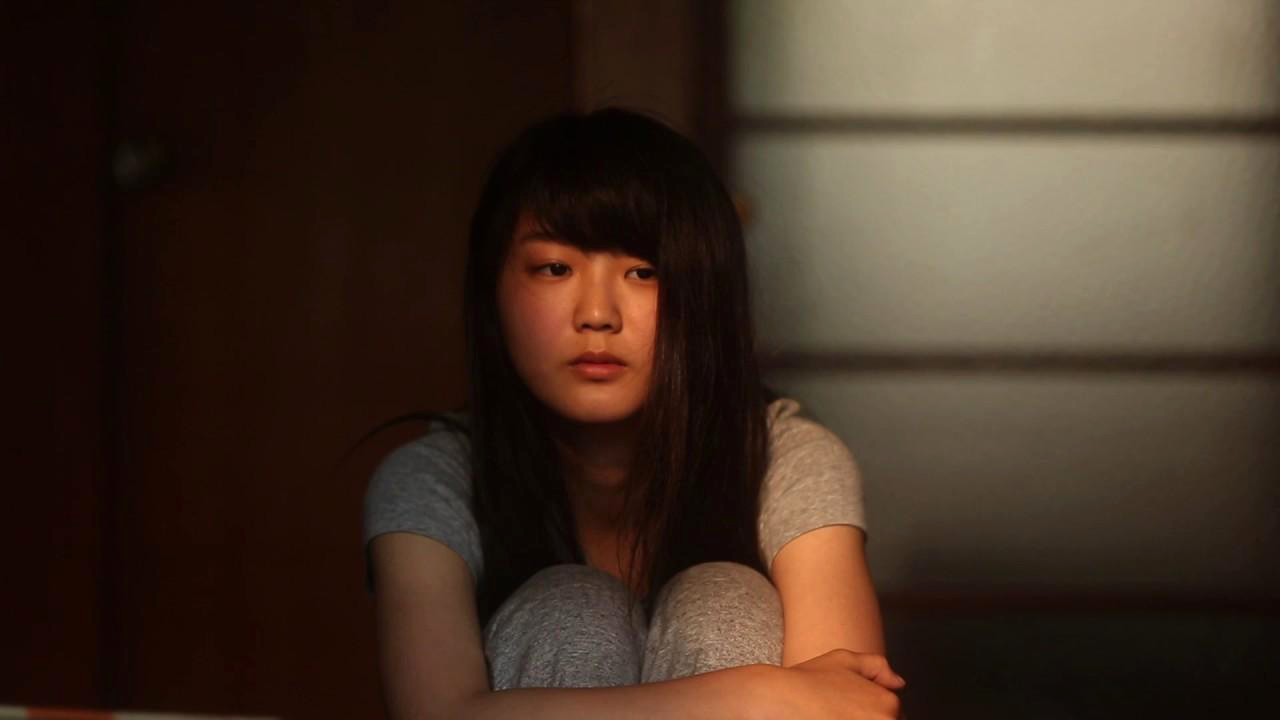High schooler Satoko lives a comfortable life surrounded by kind parents and close friends. An ever so small uneasiness begins to grow in her life. It’s an indescribable anxiety, and impulses she can not prevent. Satoko realizes that at some point she has become mired in an eating disorder. Not knowing the reason why, Satoko’s anxiety grows and steadily traps her as her relationship with family and friends also grow strained. Then one day in town she happens upon a dangerous seeming woman, Maki. Her interactions with Maki is a release for Satoko.
Based on director Tsukada Marina’s actual experiences of suffering an eating disorder while a university student, her debut feature deals with a sadly universal problem throughout the world. But the movie does not aim to dwell on the disorder nor the motivations which engendered it. Though the heroine’s anguish is very much Tsukada’s own, she hoped to draw focus on what turned her on the path to recovery. As it turns out, she met a woman on whom the character of Maki is actually modeled. Tsukada describes being able to reveal her difficult emotional state for the first time and what motivated her to make this movie: “My apprehension over what my family and friends would think of me was strong, and I was unable to tell them anything. She reassured me by saying ‘I won’t turn away,” and that made me happy. So, I too, feel like telling girls suffering now, ‘I won’t turn away.’” In a society where the girls are already thin, but seek to be as thin as actresses and models they admire, it’s an important message to convey.
The movie’s Japanese title Kara no Aji is also emblematic of the physical and emotional emptiness she felt. She noted the kanji (Chinese character) of “Kara” is used in the characters for “empty stomach”, “air”, as well as “sky”. Tsukada was intrigued at the similarities. “When I had an eating disorder it was difficult to breathe and it felt like being in water alone and air [in my lungs] had run out. I was constantly eating and vomiting so I no longer had any idea what I was eating, or what was fulfilling me. I wanted to use that kanji to signify this and that’s how the title came about.” Taste of Emptiness swept multiple awards at the Tanabe Benkei Film Festival as well as the Special Jury Award at the 11th Fukui Film Festival but has scarcely played abroad.
As she goes before the cameras on her latest, Toki–a script she wrote based on an episode from her middle school years to be shot over 10 years on 16mm covering the lives of current middle schoolers as they grow to adulthood (more on this in an upcoming article)–there may be no better time to rediscover Taste of Emptiness. Click the link in the video below to watch the full, English-subtitled feature on Vimeo On Demand through Harikiri Films.

